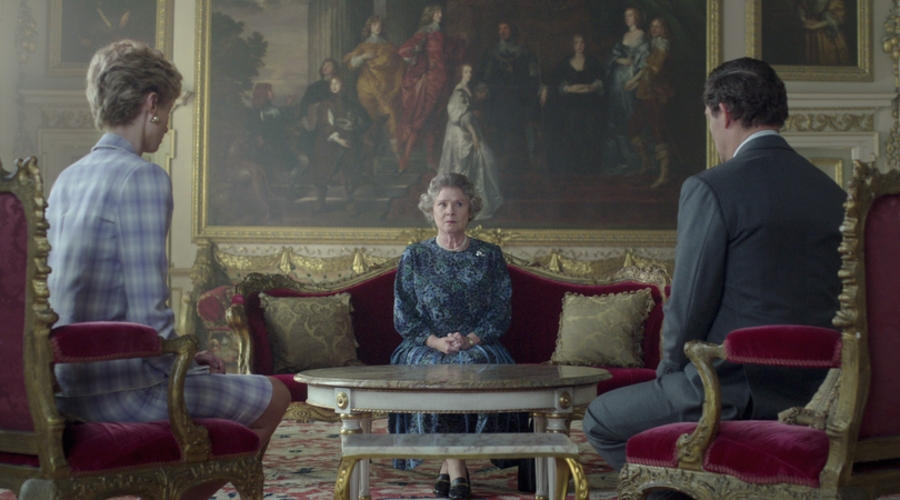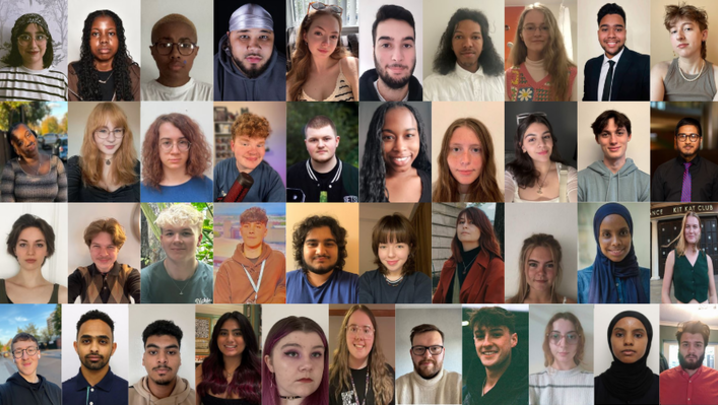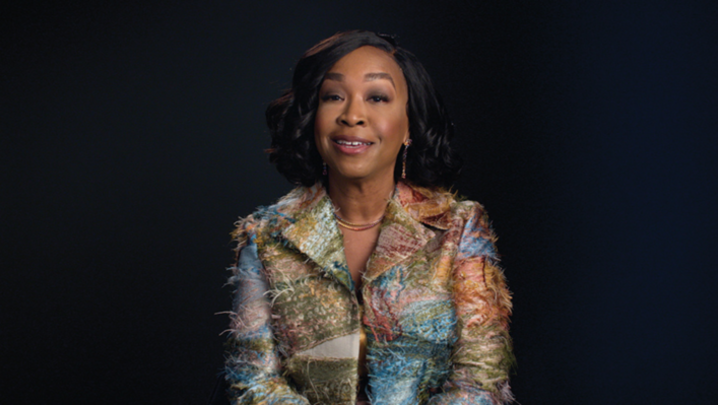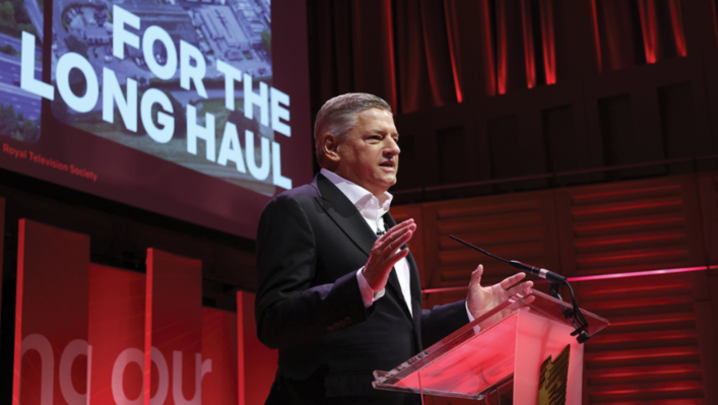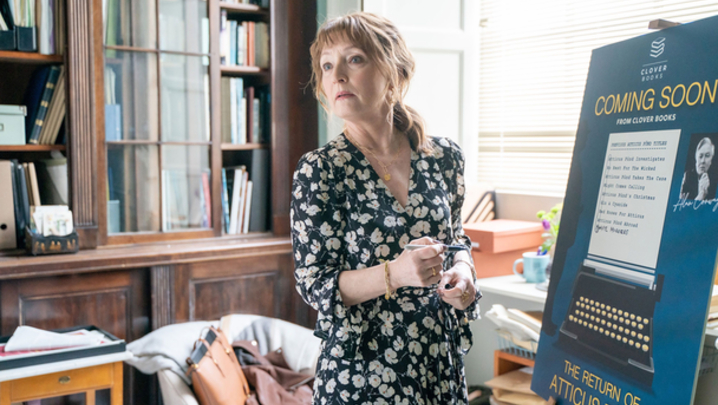The new series of The Crown is provoking fresh controversy over its depiction of real events, reports Shilpa Ganatra.
If four series of lavish production and high-stakes storylines about the upper echelons of the aristocracy weren’t enough to whet appetites for series five of The Crown, the recent death of Queen Elizabeth II will have piqued yet more interest in Netflix’s flagship show.
In the days following the monarch’s death, The Crown’s audience rose more than 800% in the UK, according to data analytics firm Whip Media. This is a reminder, if one were needed, of the strong emotional connection many viewers feel to the British Royal Family.
This point is taken up by Jonathan Pryce, who plays Prince Philip in the new series: “I remember watching the coronation on a tiny black-and-white television two days after my sixth birthday. We got the television especially for the coronation.” To block out the daylight, he says: “My mother got out the blackout curtains that they’d had to put up during the war…
“I lay on my stomach watching it, with a tiny cannon that fired matchsticks, which I’d been given as a birthday present. Whether this was the precursor to being a republican or not, I fired my cannon towards the coronation. They fell far short, they didn’t kill anyone,” he says with a chuckle. “When you’re watching The Crown or royal documentaries, there’s something quite extraordinary about how you can relate to it emotionally.”
In series five, we enter the 1990s. These are turbulent times for the monarchy as the marriages of three of the Queen’s children dissolve and the institution’s popularity takes a hit.
“When you’re watching The Crown... there’s something quite extraordinary about how you can relate to it emotionally.” - Jonathan Pryce, Prince Philip
Executive producer Suzanne Mackie says: “It’s an extraordinary season. For the first time, it feels properly existential. It’s post-Thatcher and before New Labour, so a whole new chapter in Britain’s life. The series depicts the annus horribilis of 1992 and the many things that precipitate that important moment in the Queen’s reign.”
As is customary every two seasons, this latest instalment of The Crown features a new cast. Joining Pryce are Imelda Staunton as the Queen, Lesley Manville as Princess Margaret, and Dominic West as Prince Charles. Jonny Lee Miller, who played Sick Boy in Trainspotting, takes on the role of John Major, Margaret Thatcher’s successor as Prime Minister.
Elizabeth Debicki plays Diana. It is not the first time she has auditioned for The Crown. “That was for another character, but I won’t say who,” says Mackie. “I was really surprised, but she told me that the other day.”
While some have criticised Netflix for releasing season five so close to the Queen’s death, Pryce has no qualms. “It’s an extraordinary coincidence,” he says, “There is nothing about it that I would change, given that both the Queen and Prince Philip have passed. I’m secure and confident that every aspect of the way Peter [Morgan, the show’s creator, executive producer and main writer] has approached the couple and their relationship was done with integrity, honesty and sensitivity.”
Still, it is clear that dramatising the Royals’ traumatic decade adds an extra layer of controversy. Sir John Major, as he now is, has dismissed the way events are depicted in the series as “a barrel-load of nonsense” and “malicious fiction”. The broadcaster Jonathan Dimbleby, who is a friend of King Charles III and wrote a sympathetic biography of the then Prince Charles, described The Crown’s fifth series as “nonsense on stilts”.
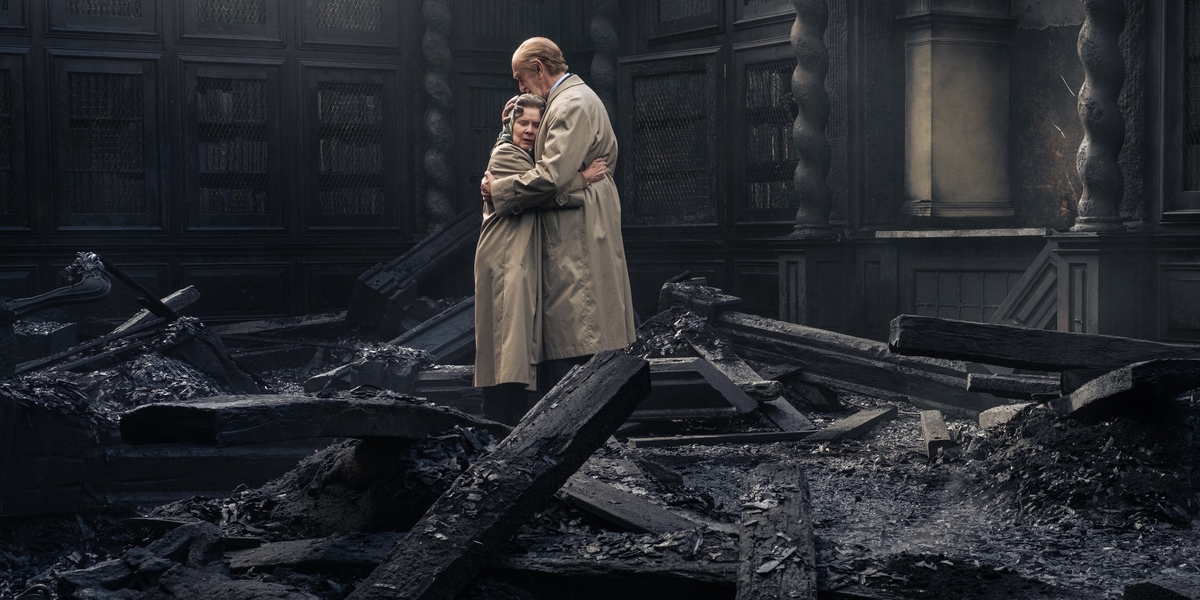
For Jessica Hobbs, lead director on the show, depicting the travails of the House of Windsor is no different from any other screen portrayal of real people. She points to Baz Luhrmann’s recent biopic Elvis as an example. “They’re all based on things that are in the public domain, plus more detailed research we do from historians and people who have worked in these organisations,” Hobbs says.
Inevitably, in a well-oiled process, The Crown’s legal team review every version of the script and flag any concerns. But that’s only the start. Hobbs says: “They also look at every cut, every pass on the edit, right through to the final mix in terms of inference and tone. They might come back and ask for several references. They need to know that it’s watertight enough that it can be defended. There are long, late-night discussions nightly when we are shooting.”
“If they flag it, it doesn’t go in,” says Mackie. “We’ve cut things at even the final mix. But we’ve always found a way to be able to have enough dramatic licence to be able to get a moment across.”
Those who watched the trailer for this series will have noted the “disclaimer” that will be played for the first time at the start of each episode: “Inspired by real events, this fictional dramatisation tells the story of Queen Elizabeth II and the political and personal events that shaped her reign.”
While this is seemingly in response to calls from Dame Judi Dench, among others – in a letter to The Times, she asked for a disclaimer at the start of the programme as a mark of respect for the Queen – the line is not a new caveat. Mackie says: “The home page has had it for a long time. It’s very clear when you go on to The Crown [website] – there it is, very carefully worded. We all consulted with each other as to what the wording should be, and we’re very comfortable with that.”
“If [The Crown's legal team] flag it, it doesn’t go in" - Suzanne Mackie, Executive Producer
The new cast may not all have the natural resemblance to their characters seen in previous casts, such as Josh O’Connor’s Prince Charles, for instance, but, Hobbs says: “The visual resemblance is never a high priority for us. We always look for the essence and then we create the visual resemblance.”
“There’s an energy,” adds Mackie. “The tracing of the Margaret line is the most interesting to me because they are probably the most physically dissimilar and yet they’ve caught and captured the truth remarkably.”
Manville agrees that there is a natural progression between Vanessa Kirby, Helena Bonham Carter, and her: “I’m not an obvious casting from a ‘looky likey’ point of view but, when you see me playing her, you just think, ‘Yeah, that’s Margaret,’ because all of the departments are doing their job and it comes together.”
Pryce was initially reluctant to take on the role of Prince Philip, given the Duke’s huge public profile. “It wasn’t something I leapt at because I thought you’re on a hiding to nothing in a way with the public perception of Philip,” he says. “But, secretly, I wanted to be asked. I had a wonderful experience playing Pope Francis [in The Two Popes], but the older you get, the less interesting the roles [you are offered] become. Rightly, women complain about it all the time.”
The new cast will continue with their roles in the sixth and final series, currently filming, which covers the latter part of the 1990s and the early 2000s, including Prince William meeting Kate Middleton at St Andrews. It’s a royal romance we know well, but seeing the drama played out in all its beautifully produced glory is certain to be a compelling draw for viewers. And, while much has changed in the monarchy and society since The Crown began in 2016, that won’t change anytime soon.
Season five of The Crown is available on Netflix.

